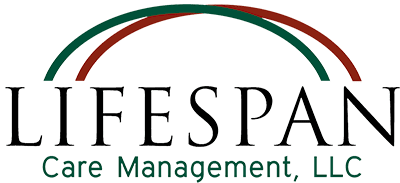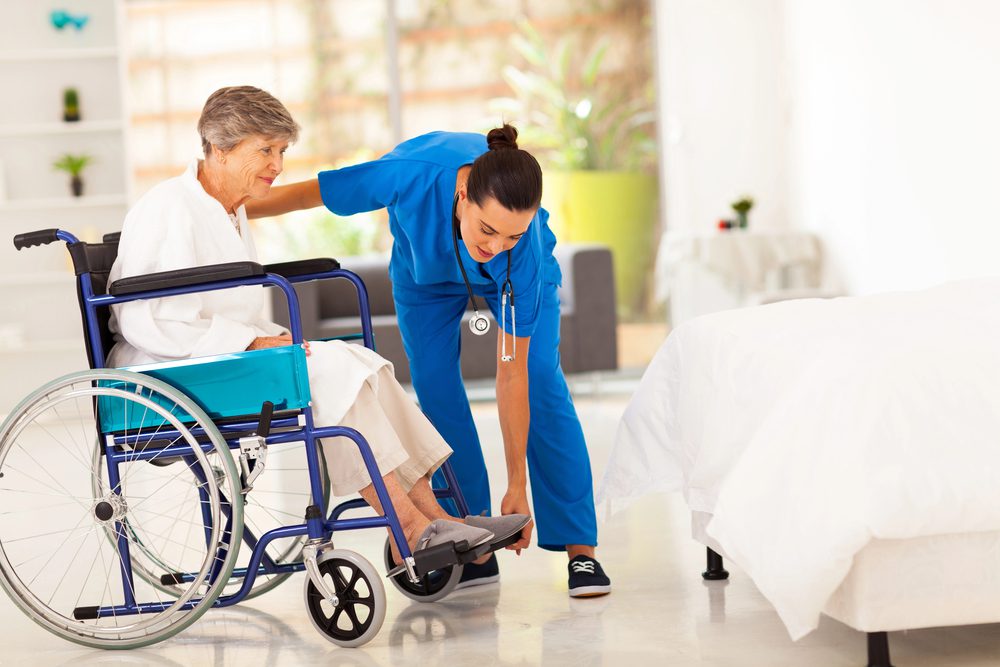Registered Nurses Can Aid in Elderly Care
Registered Nurses (RNs) are not just a part of the healthcare system. They are a crucial element in supporting older adult patients throughout the Plan of Care. Their presence ensures the safety, well-being, and optimal health outcomes of these patients. Here are several ways RNs can assist elderly patients in the plan of care:
-
- Comprehensive Assessment: RNs conduct thorough assessments of elderly patients, considering their medical history, current health status, cognitive function, mobility, nutritional needs, medication regimen, and psychosocial factors. This comprehensive assessment helps identify potential health issues, risk factors, and areas requiring intervention. LifeSpan nurses use what we call a “Nursing Rehab Model,” meaning our goal is to assist clients by recommending medical interventions, therapy approaches, and assist devices to optimize their functional outcomes and quality of life.
- Care Planning: Based on the assessment findings, RNs and RN case/care managers collaborate with interdisciplinary teams, including physicians, nurse practitioners, social workers, and other healthcare professionals, to develop individualized care plans tailored to the specific needs and preferences of elderly patients. These care plans outline goals, interventions, and strategies to address medical, functional, and psychosocial needs.
- Medication Management: RNs play a key role in medication management for elderly patients, ensuring safe and effective medication use. They review medication lists, educate patients about their medications, including dosage, frequency, potential side effects, and interactions, and monitor medication adherence. RNs also collaborate with pharmacists and prescribers to optimize medication regimens and minimize polypharmacy. Often, this leads to identifying and “de-prescribing” drugs that put client patients at risk of unwanted side effects and falls.
Patient Advocacy
RNs in all settings act as Patient Advocates to assure that the patient/client is getting appropriate care and that the patient is not put at undue risk by medication or treatments that may lead to harmful side effects.
- Chronic Disease Management: Many elderly patients have chronic health conditions that require ongoing management and monitoring. RNs provide education and support to help patients manage their chronic diseases, such as diabetes, hypertension, heart failure, and chronic obstructive pulmonary disease (COPD). They teach self-care techniques, symptom management strategies, and lifestyle modifications to promote disease control and prevent complications.
- Fall Prevention: RNs don’t just react to health issues. They take a proactive approach to preventing them. Falls are a significant risk for elderly patients, often leading to injuries, hospitalizations, and decreased quality of life. RNs assess elderly patients’ fall risk factors and implement fall prevention strategies. They also educate patients and caregivers about fall prevention strategies and teach exercises to improve strength and balance.
- Wound Care: Elderly patients are more susceptible to skin breakdown, pressure ulcers, and wound complications due to factors such as immobility, decreased skin elasticity, and comorbidities. RNs assess and manage wounds, including pressure ulcers, surgical incisions, and diabetic foot ulcers. They provide wound care interventions, such as dressing changes, wound debridement, and infection management, to promote healing and prevent complications.
- Palliative and End-of-Life Care: For elderly patients with advanced illnesses or life-limiting conditions, RNs provide palliative and end-of-life care to optimize quality of life, manage symptoms, and support patients and their families. They facilitate advance care planning discussions, assess patients’ goals and preferences for care, and coordinate hospice services when appropriate. RNs also offer patients and their loved ones emotional support, spiritual care, and bereavement services.
By addressing the unique needs of older adult patients through comprehensive assessment, individualized care planning, medication management, chronic disease management, fall prevention, wound care, and palliative care, RNs play a vital role in promoting the health, safety, and well-being of elderly patients and enhancing their quality of life.

